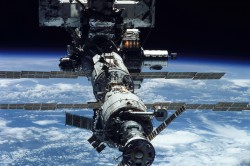Closed-loop systems used to keep astronauts alive in space could inform circular economy strategies
What were the goals of Melissa? The main space agencies would like to explore further than the Earth’s orbit. To able to do that you need to carry on board the spacecraft all the metabolic needs for the astronauts, which means air, water, food, etc. That is a lot of mass, it’s even too much for the capabilities of the launchers. The only solution is to recycle everything on board, and try to reproduce oxygen, water and food from the waste. Not only human waste, there’s also CO2 which is breathed out by the astronaut, urine, plastic, packaging and so on. We aim to create a completely self-sustaining environment. How does that relate to the circular economy and feed into the NextGen project? We started this investigation in Europe almost 29 years ago now. We were trying to create closed loops - this is now called the circular economy, but when we started this was not the name. We accumulated some know-how for space application. But over the last more or less five years, you can clearly see a very strong movement to try to improve sustainability, to recycle, to try to reduce impact ecosystems on Earth. Reduce energy, reduce resources. They’ve started looking at what we already do for space - they are talking about towns, cities, and countries of course, but the idea is the same, it’s how can we try to close the loop. What’s the relationship between closing loops in space and the circular economy on Earth? From Melissa we have 4 spin-off companies which are currently focused for terrestrial application. Some are on biomass valorisation, some are on waste recycling, so there is clearly some synergy in between. So we can learn ways to support the circular economy here on Earth, based on the research that you and other researchers have done on space? I hope so, yes. To be able to transfer this information, this knowledge of Melissa, to another activity where there is terrestrial benefit – it makes sense. I would be very pleased if from time to time I was able to say to the NextGen group – please don’t do it, we have already done it five years ago, here is the result, or that doesn’t work, better try this. That would already be very useful. Now of course within NextGen there is a new team and a new approach, and from time to time I will look at their approach to see if the Melissa project can benefit as well. What do you hope that the NextGen project will achieve? It’s really important to be able to have a community that understands the challenges of a closed loop system. Today you have a lot of people who are talking about a closed loop, but they don’t realise what it really means. That will already be an achievement, that the people understand the challenges of closing the loop and able to progress altogether.
Keywords
circular economy, space, recycling, water
Countries
France, Hungary, Netherlands



